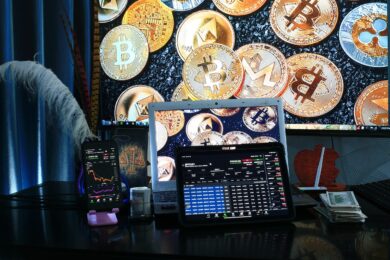Can TSMC diversify manufacturing amid geopolitical tensions?
- The company could be at the center of the China Taiwan conflict soon due to its semiconductor manufacturing.
- It is already working on a new facility based in Germany while talks are going ahead for another in the UAE.
- A lof of US companies use TSMC's facilities which may not be possible if China makes a move on Taiwan.
Taiwan Semiconductor Manufacturing Company (TSMC) stands at a crucial crossroads as geopolitical tensions escalate between China and Taiwan.
The importance of TSMC in the global semiconductor supply chain cannot be overstated; it is the backbone for major players like Nvidia, AMD, and Intel, which rely on its advanced manufacturing technologies.
With rising concerns about Taiwan’s security and China’s ambitions, the question arises: Can TSMC successfully diversify its operations before geopolitics threatens its existence?
Role of TSMC in global semiconductors
Copy link to sectionThe longstanding rivalry between China and Taiwan has significant implications for the semiconductor industry, particularly for TSMC, which is headquartered in Taiwan.
As the leading semiconductor manufacturer, TSMC plays a pivotal role in producing chips that power everything from consumer electronics to advanced AI systems.
The United States has imposed various sanctions on China to restrict its access to Western semiconductor technologies, aiming to maintain its technological edge and prevent China from advancing in critical areas, including military AI.
These geopolitical dynamics underscore the urgency for TSMC to diversify its manufacturing capabilities and reduce reliance on its Taiwanese facilities.
The ability to stay ahead in semiconductor technology is vital, as advancements in AI could reshape global power structures.
TSMC’s expansion plans in the Middle East
Copy link to sectionIn response to these challenges, TSMC is planning to establish mega factories in the Middle East, specifically targeting the UAE.
Despite China’s growing influence in the region, the Gulf states are viewed as more stable environments for TSMC to operate.
Recent discussions between TSMC representatives and UAE officials have centered on replicating the company’s successful manufacturing model established in Taiwan.
The Gulf states, buoyed by oil wealth, are keen to enhance their technological infrastructure.
Countries like Saudi Arabia and the UAE aspire to become leaders in future technologies.
Although they currently lack the necessary R&D capabilities, their financial resources can attract top-tier tech companies, providing TSMC with a promising operational base.
Setting up operations in the UAE may also serve as a strategic buffer against potential Chinese influence, ensuring that TSMC remains insulated from direct competition.
However, this move will likely draw political scrutiny from the US, which may pressure Gulf states not to share advanced technology with China. For now, the immediate priority appears to be securing TSMC’s operations against geopolitical threats.
In addition to its Middle Eastern ventures, TSMC is also pursuing a manufacturing facility in Dresden, Germany.
This facility offers the advantage of affordable labor and the political backing of a key US ally in Europe.
TSMC holds a 70% stake in this project, with NXP Semiconductors, Infineon Technologies, and Bosch each owning 10%. Development work commenced last month, signaling TSMC’s commitment to expanding its global footprint.
The ongoing geopolitical tensions between China and Taiwan show no signs of abating.
TSMC’s strategic shift to diversify its manufacturing capabilities reflects the long-term challenges posed by this conflict.
US chip manufacturers are likely to breathe a sigh of relief as TSMC’s foreign facilities come online, although it may take several years for these plans to materialize fully.
More industry news







